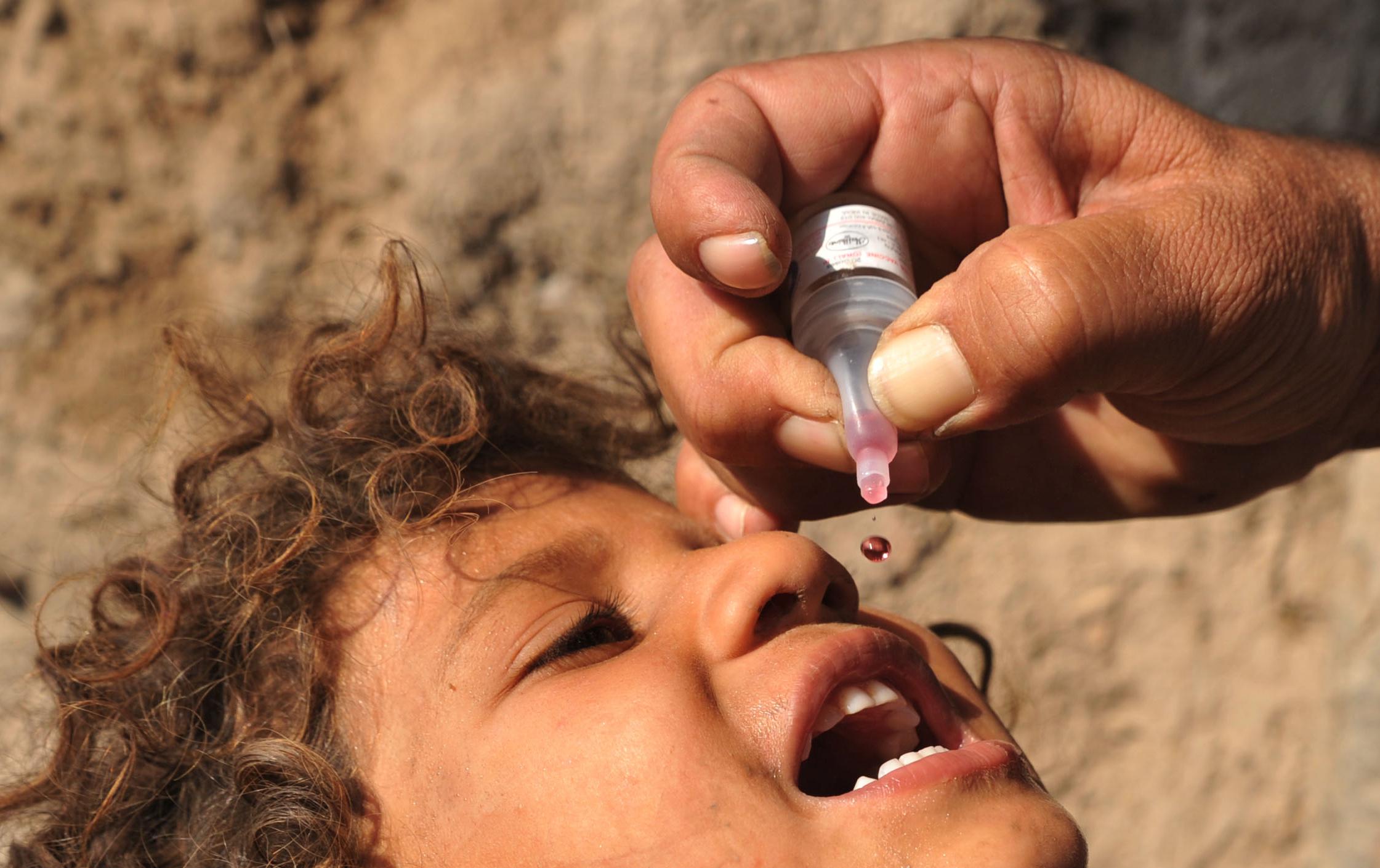As is often the case, armed conflict is saving a deadly disease from the brink of extinction. The World Health Organization has confirmed an outbreak of polio in Syria, the country’s first since 1999. Twelve children have already been confirmed as infected, but thousands more likely are. In the midst of war, mass displacement, and the collapse of the country’s health care system, the country’s immunization rate dropped from 91 percent in 2010 to 68 percent today.
This isn’t an isolated case. Though health groups still say polio could be eradicated entirely by 2018, recent outbreaks in Pakistan and Somalia are making this more likely. (The threats of violence against health workers in Pakistan aren’t helping matters.)
Polio also isn’t the only disease being kept alive by political violence. Guinea worm, a painful parasite once common in Africa and Asia, was thought to be on the verge of eradication, but health workers warned earlier this year that violence in Mali could hamper efforts to eliminate it entirely.
In both cases, it’s been demonstrated that science has the means to wipe these diseases out, if only politics didn’t keep getting in the way.
